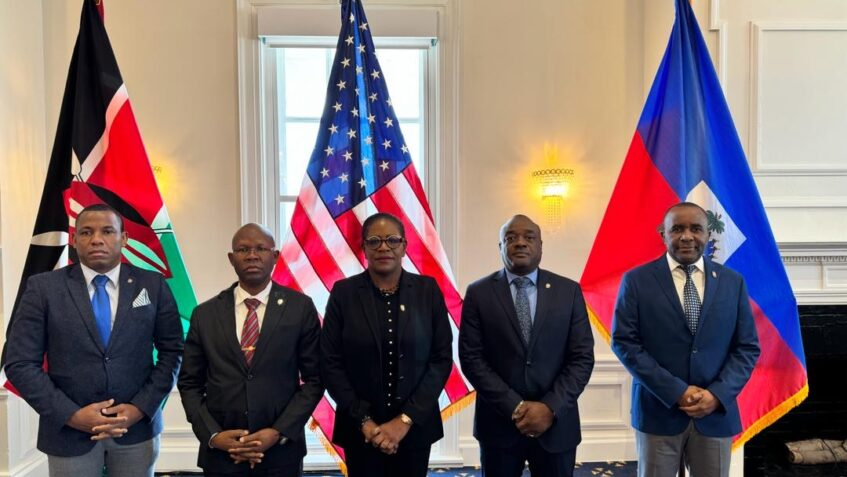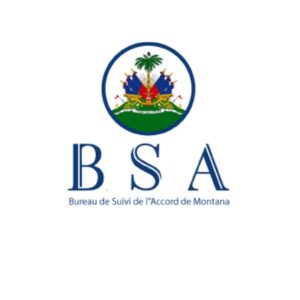Democracy Now! Haiti, Honduras and the hegemony of the United States
“The so-called gang violence is actually not the main problem in Haiti. The main problem in Haiti is the constant interference of the international community, and the international community here is, very explicitly, the U.S., France and Canada.”
Haiti and Honduras have made headlines in recent weeks. The former president of Honduras, Juan Orlando Hernández, has just been found guilty by a US court of drug trafficking. He faces life imprisonment. Haiti is a country without a government, as armed groups have united against the unelected US-backed prime minister installed after the assassination of their president in 2021. In both cases, what is missing in the media coverage general public, it was the role of American intervention that brought them to this point.
“The crisis in Haiti is a crisis of imperialism,” Jemima Pierre, a professor at the University of British Columbia and a Haitian-American scholar, explained on the Democracy Now! news hour. In her NACLA Report article titled “Haiti as a Laboratory of Empire,” she describes her native country as “the site of the modern world’s longest and most brutal neocolonial experiment.”
Haiti was the world’s first black republic, founded in 1804 following a slave revolt. France demanded that Haiti pay reparations for the loss of slave labor when Haiti’s slaves freed themselves. For more than a century, Haiti’s debt payments to France, and later to the United States, hampered its economy. The United States refused to recognize Haiti for decades, until 1862, fearing that the example of a slave revolt would inspire the same in the United States.
In 1915, the United States invaded Haiti, occupying it until 1934. The United States also supported the brutal Duvalier dictatorships from 1957 to 1986. Jean-Bertrand Aristide became Haiti’s first democratically elected president in 1991, only to be overthrown by a violent blow eight months later. The coup was supported by President George HW Bush and later by President Bill Clinton. Public pressure forced Clinton to allow Aristide’s return in 1994, ending his presidential term in 1996. Aristide was re-elected in 2001. “In 2004…the United States, France and Canada came together and supported a coup d’état against the country’s first democratically elected president, Jean-Bertrand Aristide,” continued Jemima Pierre. “The U.S. Marines put him on a plane with his security officials, his wife and his aide, and sent them to the Central African Republic. » Democracy Now! visited the Central African Republic in 2004, covering a delegation led by Transafrica founder Randall Robinson and U.S. Congresswoman Maxine Waters, who defied U.S. policy and escorted the Aristides to the Western Hemisphere. Aristide confirmed to Democracy Now! at the time that he had been overthrown in a US-backed coup. Aristide then went to live in exile in South Africa for the next seven years.
In response to allegations that gangs currently control Haiti, Professor Pierre said: “So-called gang violence is actually not the main problem in Haiti. The main problem in Haiti is constant interference from the international community, and the international community here is, very explicitly, the United States, France and Canada. »
The Biden administration is apparently now considering transferring Haitian asylum seekers to the controversial US naval base at Guantanamo Bay, Cuba – a repeat of some of the worst US policies in its long history of exploiting Haitians.
Meanwhile, Honduras currently has a democratically elected president, Xiomara Castro. Her husband, Manuel “Mel” Zelaya, was elected president in 2006 and then overthrown in a U.S.-backed coup in 2009. Over the next few years, Honduras became a narco state, forcing hundreds of thousands of people fleeing violence to seek asylum in the United States and elsewhere.
In 2013, Juan Orlando Hernández was elected president despite allegations of campaign finance violations, and again in 2017 in an election widely considered fraudulent. Shortly after, his brother Juan Antonio Hernández was arrested in Miami on drug charges. Then, following the election of Xiomara Castro, Juan Orlando Hernández himself was arrested and extradited to the United States for cocaine trafficking. On March 8, he was found guilty in U.S. federal court and is currently awaiting sentencing.
“The evidence was disturbing,” Dana Frank, a history professor present in court, said on Democracy Now!. “This litany of assassinations of prosecutors, assassinations of journalists, corruption of the police, the army, the politicians, the president, his brother, you name it. And it was as if the curtain was drawn back, and you could see the daily functioning of this violent and corrupt mechanism that was the administration of Juan Orlando Hernández… this is what happened after the coup d’état of 2009 which paved the way for the destruction of the rule of law in Honduras. »
U.S. intervention in Haiti, Honduras and other countries is one of the main factors driving people to seek asylum in the United States, as they flee violence, poverty and persecution in their country. This point is almost never mentioned in the American press. To understand and ultimately resolve the “immigration crisis”, Americans need to understand what their government has long done in their name, with their tax dollars: arming and supporting brutal regimes abroad.
Haiti, Honduras, and US Hegemony | Democracy Now!








